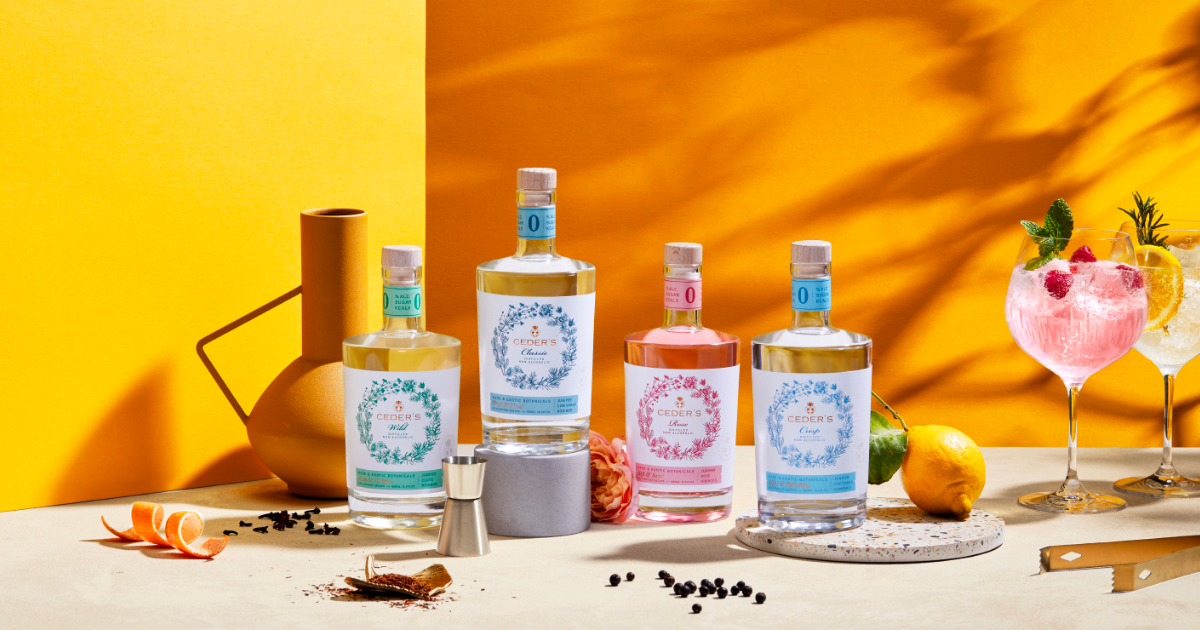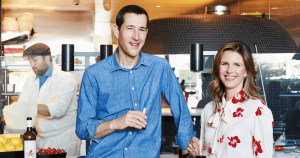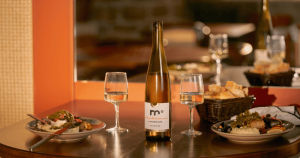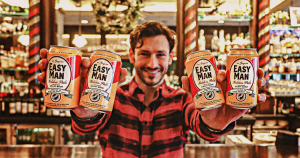In the world of non-alcoholic spirits, Ceder’s stands out as a pioneer. Founded in 2017 by Craig Hutchison and Maria Sehlstrom, Ceder’s draws inspiration from the lush biodiversity of South Africa’s Cederberg mountains. The result? A unique range of sophisticated gin alternatives based on unique botanicals. This Q+A covers the inspiration behind the brand, their commitment to sustainability, and their vision for the future of social drinking.
What inspired the initial concept of Ceder’s?
Created in 2017, Ceder’s was inspired by the Cederberg mountains of South Africa from which Rooibos and Buchu, two botanicals present in each product of the range, come from.
Ceder’s was also inspired by the desire to create an alternative to traditional spirits that could cater to those who choose not to consume alcohol. Indeed, following the growth of wellness trends, more and more alcohol drinkers are looking to reduce their alcohol intake. But, they don’t want to compromise on their drinking experience as part of their socializing.
Why did your journey lead you to the Cederberg mountains?
The journey to South Africa was driven by the search for unique botanicals. The Cederberg mountains are known for their rich biodiversity, providing access to indigenous botanicals that contribute to the distinctive flavors of Ceder’s range.
Rooibos, for example, is known for its antioxidant virtues and brings sweet notes to the taste of each bottle. On the other hand, Buchu, a botanical often associated with aromatherapy, offers characteristic fruity notes.
Tell us a bit more about the botanicals used in Ceder’s.
Some of the botanicals used in Ceder’s include juniper, coriander, and lavender, among others. Each botanical contributes its own unique flavors and aromas to the final product, creating a complex and balanced non-alcoholic range that offers great versatility for cocktails and countless drinking options.
How do you balance the desire to create a product that is both innovative and respects the traditional drinking experience?
Balancing innovation with respect for tradition involves experimenting with new ingredients and techniques, all while ensuring that the final product maintains the core characteristics and versatility of the traditional drinking experience. This balance allows Ceder’s to appeal to consumers who decide not to drink alcohol to feel good about their choices and still be part of the moment.
Can you talk about the challenges of introducing a non-alcoholic gin to a market traditionally dominated by alcoholic beverages?
Introducing a non-alcoholic spirit to a market dominated by alcoholic beverages can present challenges such as overcoming stigma, educating consumers about the product, and creating a compelling value proposition. However, the increasing global awareness of non-alcoholic options helps overcome these challenges.
The non-alcoholic spirits market itself has seen significant growth in recent years. How does Ceder’s differentiate itself?
Ceder’s differentiates itself by offering a high-quality product made with natural botanicals, by committing to sustainability as a member of 1% for the Planet, and by providing a distinctive vision. In a world where we tend to slow down to rebalance, Ceder’s pushes spirited people to maximize life through vibrant experiences. We believe true mindfulness is about thriving in the moment. Finally, unique flavor profiles and versatile usage in cocktails sets us apart from other alternatives.
Looking to the future, how do you envision the role of non-alcoholic spirits evolving in the broader context of social drinking and wellness trends?
In the future, non-alcoholic spirits like Ceder’s are likely to play an increasingly significant role in social drinking as consumers seek healthier alternatives that offer the same premium and adult drinking experience as alcoholic beverages. As lifestyle preferences shift, the demand for sophisticated non-alcoholic options is expected to continue rising.
Dry Atlas is a media company focused on alcohol alternatives. We deliver non-alc insights, news, and recs to over five million people annually. To stay up to date on all things non-alc, subscribe to our weekly newsletter.






